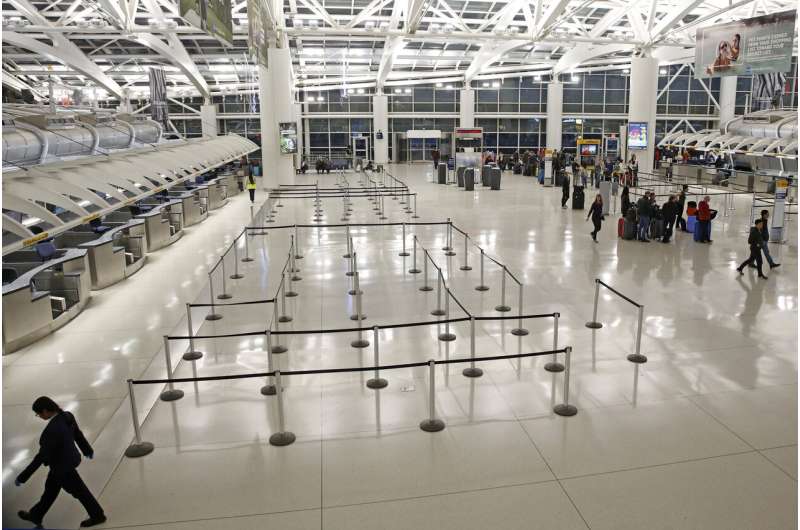People visit an international terminal at John F. Kennedy airport, Friday, March 13, 2020, in New York. A ban on travelers from most European countries begins at midnight Friday, and travelers returning from there will be screened. The ban is the latest calamity for a global travel industry already reeling from falling bookings and canceled reservations as people try to avoid contracting and spreading the coronavirus. (AP Photo/Kathy Willens)
The Trump administration is considering an upgrade to its already dire warning to Americans against all international travel as the coronavirus outbreak spreads.
U.S. officials said Thursday the State Department could soon issue a new alert urging Americans not to travel abroad under any circumstances. The officials spoke on condition of anonymity because a final decision has not been made and the warning could be tempered, even if approved.
At the moment, the department's advice to U.S. citizens is to "reconsider" all international travel under what is known as a "level three" alert. A global "level four" warning would be unprecedented as such alerts are generally reserved for specific countries embroiled in conflict, natural disasters or where Americans face specific risks.
However, even if the upgrade from the "level three" to a "level four" is approved, it would have little practical effect because it is not mandatory and there are now limited transportation options for international travel. The only way to ban Americans from going abroad would be to invalidate the use of U.S. passports for such travel, a bar that is currently in place only for North Korea.
In addition, the main impact of State Department travel alerts is to cause insurance companies to increase premiums or cancel travel policies for group and individual tours, many of which had been scrapped even before the alert was raised to level three earlier this week.
The department has already advised Americans that many U.S. embassies and consulates abroad are operating with reduced staff and hours due to the COVID-19 outbreak and that services for Americans in need of assistance are limited.
© 2020 The Associated Press. All rights reserved. This material may not be published, broadcast, rewritten or redistributed without permission.






















